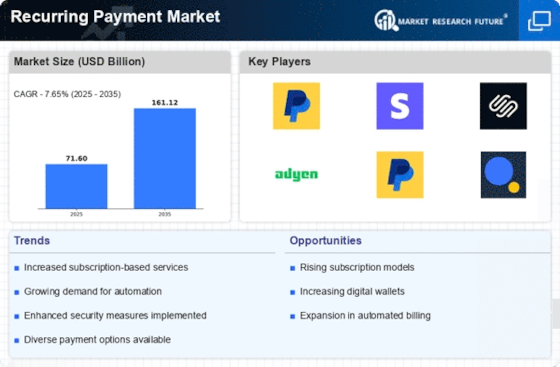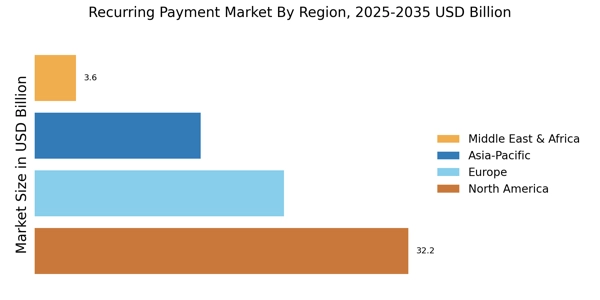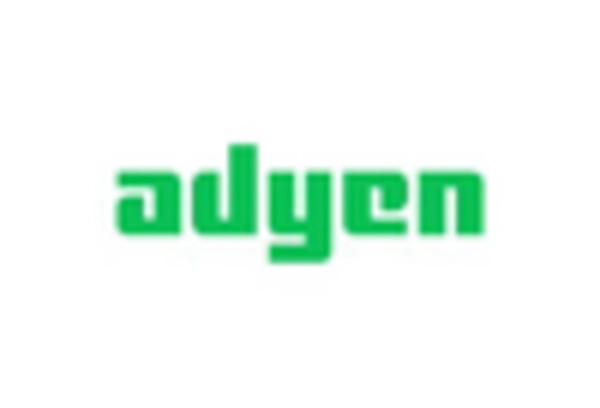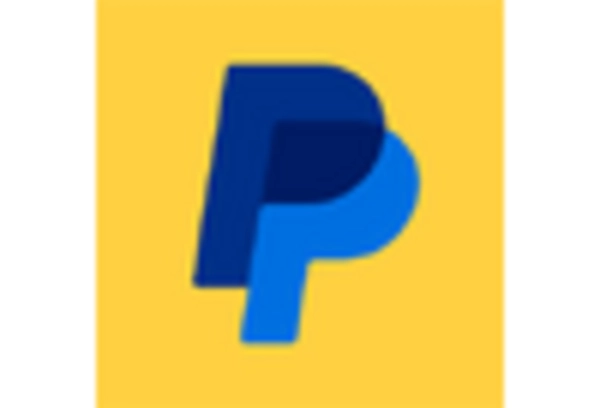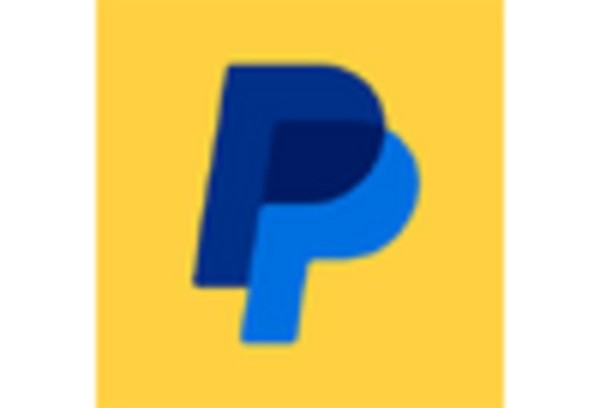Rise of E-commerce Platforms
The expansion of e-commerce platforms has been a pivotal driver for the recurring payment Market. As more consumers turn to online shopping, businesses are increasingly adopting subscription models to enhance customer loyalty and ensure steady revenue streams. In 2025, it is estimated that e-commerce sales will account for a substantial portion of total retail sales, further propelling the demand for recurring payment solutions. This trend indicates that companies are likely to integrate recurring payment systems to facilitate seamless transactions, thereby improving customer experience and retention. The Recurring Payment Market is thus positioned to benefit from this shift, as businesses seek to streamline their payment processes and cater to the evolving preferences of consumers.
Regulatory Support for Digital Payments
Regulatory support for digital payments is emerging as a significant driver for the Recurring Payment Market. Governments and financial institutions are increasingly recognizing the importance of digital payment solutions in promoting economic growth and financial inclusion. Initiatives aimed at enhancing the security and efficiency of digital transactions are likely to foster a more favorable environment for recurring payment solutions. As regulations evolve to support innovative payment methods, businesses will be encouraged to adopt recurring payment systems that comply with these standards. This regulatory landscape is expected to bolster the growth of the Recurring Payment Market, as companies seek to align with best practices and capitalize on new opportunities.
Increased Demand for Subscription Services
The growing popularity of subscription services across various sectors is significantly influencing the Recurring Payment Market. Industries such as entertainment, software, and food delivery have witnessed a surge in subscription-based offerings, which cater to consumer preferences for convenience and flexibility. Reports suggest that the subscription economy has been expanding at an impressive rate, with many companies reporting increased customer acquisition and retention through these models. This trend indicates a robust market potential for recurring payment solutions, as businesses require efficient systems to manage ongoing transactions. As more companies recognize the benefits of subscription services, the Recurring Payment Market is likely to experience sustained growth.
Consumer Preference for Flexible Payment Options
Consumer preferences are shifting towards flexible payment options, which is a key driver for the Recurring Payment Market. As individuals seek more control over their financial commitments, businesses are responding by offering various subscription plans and payment schedules. This flexibility not only enhances customer satisfaction but also encourages higher conversion rates for subscription services. Data indicates that consumers are more likely to engage with brands that provide tailored payment solutions, leading to increased loyalty and repeat business. Consequently, the Recurring Payment Market is likely to thrive as companies adapt to these changing consumer expectations and invest in flexible payment systems.
Technological Advancements in Payment Processing
Technological advancements in payment processing are reshaping the landscape of the Recurring Payment Market. Innovations such as artificial intelligence, machine learning, and blockchain technology are enhancing the efficiency and security of payment systems. These technologies enable businesses to offer more personalized and secure payment experiences, which are crucial for maintaining customer trust. In 2025, it is anticipated that the integration of advanced technologies will lead to a more streamlined payment process, reducing transaction times and costs. As companies increasingly adopt these technologies, the demand for sophisticated recurring payment solutions is expected to rise, further driving growth in the Recurring Payment Market.


